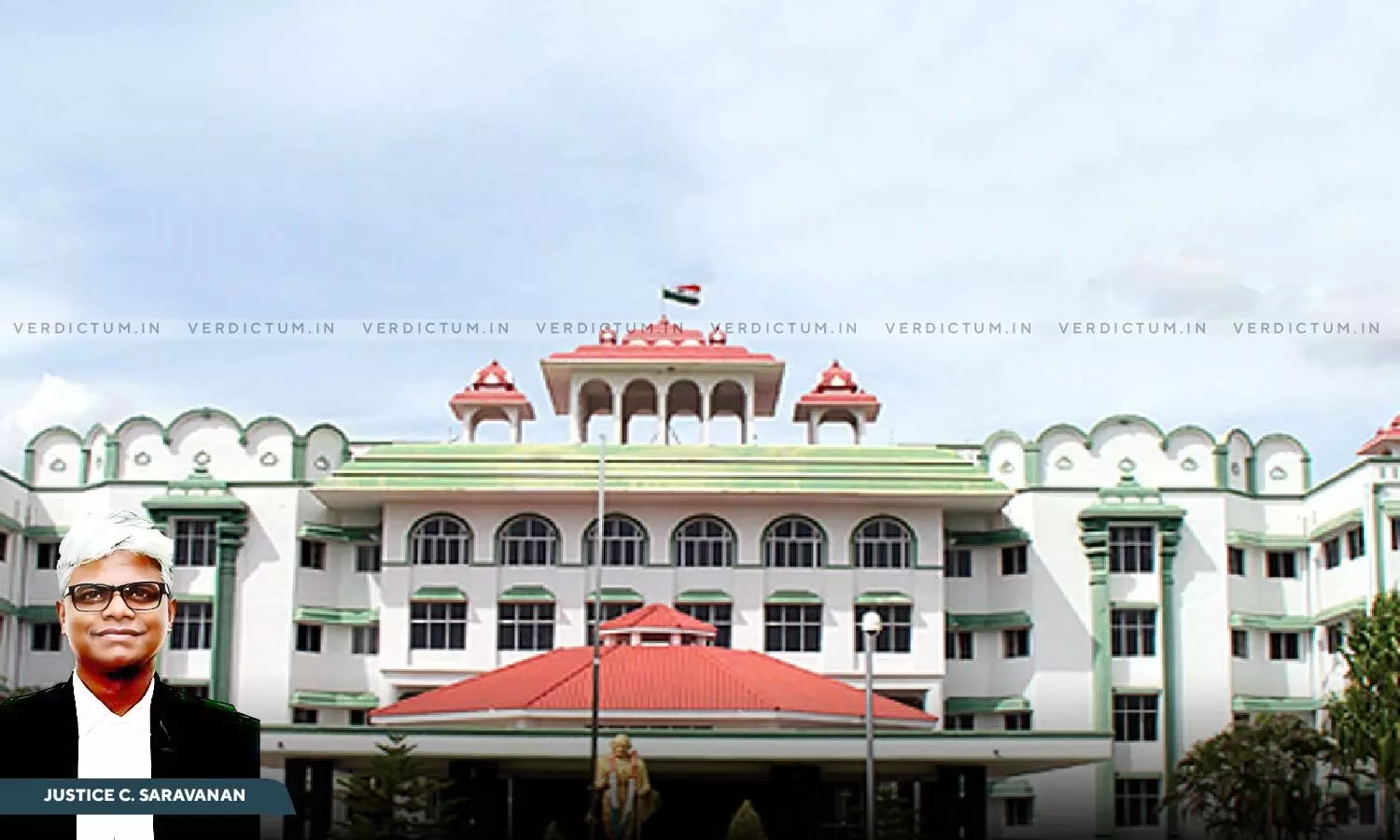
Objection To Handing Over Sengol (Sceptre) To A Woman Is An Affront To Equality Guaranteed Under Constitution: Madras HC
 |
|The Madras High Court held that an objection to handing over the Sengol (Sceptre) to a woman or a widowed woman is an affront to equality guaranteed and enshrined under the Constitution.
A Sceptre refers to a staff or wand held in the hand by a ruling monarch as an item of royal or imperial insignia, signifying sovereign authority.
The Madurai Bench held thus in a writ petition filed for the issuance of writ of mandamus, directing the authorities to follow the age old custom and usage followed in Sri Meenakshi Sundareshearar Temple of handing over of Baton of Rule 'Sengol' during Pattabhishekam day in Chitra festival slated on April 19, 2024 to any of the qualified member of Ananthakula Sadashiva Bhattar (Vikrapandi Bhattar) family and in the event of no such person available, to keep the same by the side of the idol itself in consonance with the tradition, usage and Agamas and thereby follow the mandate of Section 28 of the Tamil Nadu H.R. and C.E. Act.
A Single Bench of Justice C. Saravanan observed, “Handing of Sengol (Sceptre) appears to be a practice adopted to symbolize of succession and transfer of power. It appears to be a practice adopted during the Chola reign. A high priest of the Temple was assigned the task of blessing the new monarch and hand over the Sengol (Sceptre). Handing over of the Sengol (Sceptre) signified that the person presented with Sengol (Sceptre) namely, the new monarch had the power to rule the subjects/citizens. Presentation of Sengol (Sceptre) implies to rule both righteously and judiciously and benevolence. This practice later appears to have been adopted in Temples. … The objection to handing over the Sengol (Sceptre) to a woman or a widowed woman prima facie is an affront to equality guaranteed and enshrined under the Constitution.”
Advocate V. Ramakrishnan appeared for the petitioner while Additional Advocate General Veera Kathiravan appeared for the respondents.
Brief Facts -
The petitioner named S.Dhinakaran had approached the court at the 11th hour on the strength of Sethala Kuripedu and Sethala Book, which according to him, depicted and described the custom and usage as far as handing over of Sengol. The specific case of the petitioner was that neither a widower nor widow can receive the Sengol [Sceptre] and receipt of Sengol [Sceptre] by a widower or widow would be an affront to the Agama principles as described in Sethala Kuripedu and Sethala Book. In this connection, the counsel for the petitioner drew the attention of the court to some passages from Sethala Kuripedu.
The High Court in view of the facts and circumstances of the case noted, “The text of Sethala Kuripedu and Sethala Book produced by the petitioner also do not indicate that there was any embargo in handing over the Sengol (Sceptre) to a woman or a widowed woman. Even if there were sanctions operating in the ancient times, such prejudice/discrimination practiced in antiquity, have to give way in these modern time after the Constitution was adopted.”
The Court added that the irony of the case is that the presiding deity in the famous Meenakshi Amman Temple symbolizes power of the consort of Hindu God Lord Shiva, namely, Parvathy and main deity in the Temple is a symbol of womanhood and power and the history shows that the power is not only celebrated but also revered, venerated, and worshipped.
“I am not inclined to entertain this Writ Petition to stall the arrangements already made by the Temple Authorities. Suffice to state, the petitioner may canvass his objection by filing a suitable application under Section 63(e) of the Tamil Nadu Hindu Religious and Charitable Endowments Act, 1959 before the second respondent / Joint Commissioner, Sri Meenakshi Sundareshwarar Temple, Madurai”, it said.
The Court concluded that the said application may be decided by the Joint Commissioner before the ensuing festival for the next calendar year i.e., 2025, so that all the issues can be set at rest and while passing the order, he may also consider the representation of the petitioner.
Accordingly, the High Court dismissed the writ petition.
Cause Title- S.Dhinakaran v. The Commissioner of HR and CE & Ors.
Appearance:
Petitioner: Advocate V. Ramakrishnan
Respondents: AAG Veera Kathiravan, Special Government Pleader P. Subbaraj, and Standing Counsel VR Shanmuganathan.